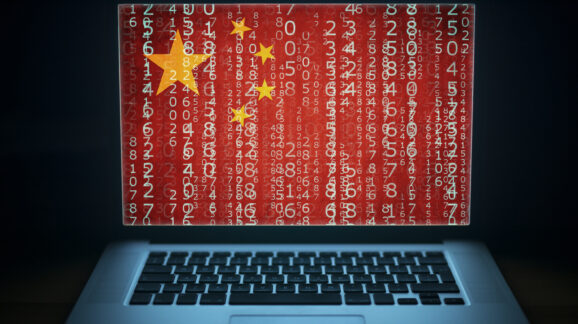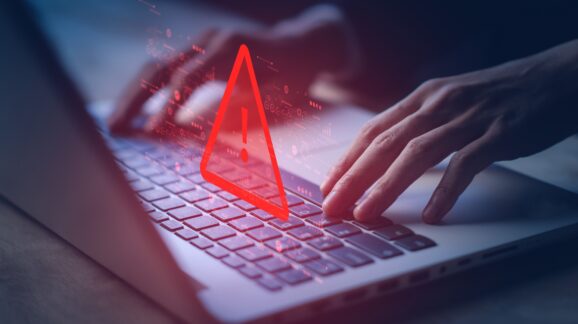Featured Posts

Study
No Permission Needed
Robust, resilient, and high-capacity internet service is critical to America’s economic prosperity and success. A key part of internet service is Wi-Fi, which provides Americans…

Blog
Everyone agrees we need more spectrum, so why is Congress making it complicated?
Politics prioritized over policy is de rigueur these days, but it shouldn’t be for spectrum auction reauthorization. The importance to the US economy and to…

Blog
The bait and switch of Government Owned Networks
We are all familiar with bait and switch, the deceptive practice where a customer is enticed by one offer and then forced into a higher…
Search Posts
News Release
CEI Files Comments on Proposed Travel Regulations
Full comments available in pdf format.<?xml:namespace prefix = o ns = “urn:schemas-microsoft-com:office:office” /> Contact for Interviews: …
Op-Eds
Letters to the Editor: We Must Address the Root Problem of Spam
<?xml:namespace prefix = o ns = “urn:schemas-microsoft-com:office:office” /> Much of the Internet industry's newfound support of e-mail spam legislation seems…
News Release
FCC Should Repeal Media Ownership Rules
Contact for Interviews:<?xml:namespace prefix = o ns = “urn:schemas-microsoft-com:office:office” /> Jody Clarke, 202.331.2252 Washington, D.C., May…
News Release
Stopping Spam: New Study Focuses on Anti-Spam Strategies
Contact for Interviews:<?xml:namespace prefix = o ns = “urn:schemas-microsoft-com:office:office” /> Richard Morrison, 202.331.2273 Washington, D.C., May…
News Release
CEI President Urges DOT to Reduce Regulation of Online Travel Services
Today the Department of Transportation (DOT) is holding a public hearing regarding the latest review of its restrictions on computer reservations systems (CRSs).
Op-Eds
Junk Laws Can’t Cut the Spam
Unsolicited commercial junk email, or “spam,” is a huge problem. Especially the porn; I have to shoo my children out of the room whenI check my e-mail. But junk legislation offered up to presumably solve the problem can make things worse. Touted at an unsolicited press conference last week, Sen. CharlesSchumer, New York Democrat, proposed legislation that would imposesubject-line labeling requirements for commercial e-mail (it wouldhave to say “ADV”); forbid concealing one's identity; mandate an”unsubscribe” mechanism; ban the use of software capable ofcollecting e-mails from the Internet; set up stiff non-compliancefines; and establish an expensive (and likely hackable and thus worse-than-useless) Do-Not-Spam list at the Federal TradeCommission. Of course, politicians exempt themselves as possibleoffenders under anti-spam legislation, remaining free to send usjunk campaign material. The downside to an Internet in which you can contact whomever youwant, is that anyone can contact you. Spammers pay no postage orlong-distance charges. The solution is to shift those costs back tothe spammer; the question is whether to do that is legislatively ortechnologically. Plainly, peddling fraudulent merchandise or impersonatingsomebody else (such as a person or organization like AOL) in the e-mail's header information should be punished, as should breaking anagreement made with an Internet service provider (ISP) thatprohibits bulk mailing. But in the debate over the outpouring of spam, it's important toavoid unintentionally stifling beneficial e-commerce. Regulatingcommunications isn't something to be done lightly. If a law merelysends the most egregious spammers offshore to continue hammering us,that may simply create legal and regulatory hassles for smallbusinesses trying to make a go of legitimate e-commerce, or formainstream companies that are not spammers. Commercial e-mail, evenif unsolicited, may be welcome if the sender is a business sellinglegal and legitimate products in a non-abusive manner. As the market works to shift costs of commercial e-mail back tothe sender, we must be on guard against legislative confusion inapproaches like Mr. Schumer's: How might the definition of spamexpand beyond unsolicited and commercial e-mail? What about unsolicited political or nonprofit bulk e-mailings,press releases, resume blasts and charitable solicitations? Whatabout newsletters that contain embedded ads? Or what about one'spersonal e-mail signature line with a link back to one's employer?That's a subtle solicitation, whether we admit it or not. At thevery least, unwise legislation would create serious headaches fornoncommercial e-mailers like nonprofit groups. Would pop-up adsbecome suspect in the aftermath of spam legislation? They're not e-mail, but they are unsolicited and commercial. Finally, legal bans on false e-mail return addresses, as well asbans on software capable of hiding such information, have worrisomeimplications for free speech and anonymity for individuals, and willbe ignored by spammers anyway. Well-meaning individuals can use”spamware” to create the contemporary version of the anonymousflyers that have played such an important role in our history.Individuals should retain the ability to safeguard their anonymityeven in (or perhaps especially in) a mass communications tool like e-mail. In an era in which so many people are concerned about onlineprivacy, a law that impedes a technology that can protect suchprivacy would be curious indeed. Smarter approaches to the spam epidemic include better e-mailfiltering, such as setting the owner's screen to delete bulk mailand to receive only from recognized and approved e-mail addresses.That's particularly appropriate for children's e-mail accounts.Emerging “handshake” or “challenge and response” systems capable oftotally blocking spam show promise: Because the most offensive spamis sent by automatic bulk-mailing programs that are not capable ofreceiving a reply, spam no longer appears in the in-box. Identifiers or “seals”' for trusted commercial e-mail could beanother means of helping ISPs block unwanted e-mail. A newconsortium including America Online, Microsoft, and Yahoo, toestablish “certified” e-mail would bolster this approach. Given the perfectly understandable desire to stop unsolicited e-mail, it is all too easy for Congress to undermine legitimatecommerce, communications and free speech. And crippling Internetcommerce would be especially pointless if spam continued pouring infrom overseas. A better target is unsolicited press conferences,like the one at which Mr. Schumer dropped his bill. $25,000 fine, atleast. Send payment to [email protected]. <?xml:namespace prefix = o ns = “urn:schemas-microsoft-com:office:office” />…
Op-Eds
Real-Time Dragnet: Cracking down on Internet innovation
“To serve and protect” is a longstanding slogan of police departments everywhere. It’s also an accurate description of a political dragnet against e-commerce, a scenario…
Op-Eds
Why Taxing Internet Sales Makes No Cents or Sense
As the April 15 deadline to pay personal income tax approaches, momentum is building to force a new group of people onto the…
Op-Eds
If The Feds Regulate Mere Annoyances, What Will They Not Regulate?
Question: Should government protect your dinner hour from annoying telemarketers? Answer: If the feds regulate mere annoyances, what will they not regulate?…
News Release
Proposed Telecom Rules Threaten Competition
Washington, D.C., March 11, 2003—The Competitive Enterprise Institute and several other free market groups are petitioning the White House to support the…
CEI Planet
February Edition of CEI Monthly Planet
Full Document Available in PDF Articles in this edition:…
News Release
New FCC Plan A Small Step For Telecom Deregulation
Washington, D.C., February 20, 2003— The Federal Communications Commission today approved new rules affecting competition between telecommunications firms. Today's plan does not…
News Release
Project On Technology And Innovation Expanding
Washington, D.C., February 12, 2003—The Competitive Enterprise Institute is expanding its Project on Technology and Innovation with the addition of…
News Release
New SEC Rules Create Added Costs, Little Benefits
Washington, D.C., January 29, 2003 – Despite opposition from many sources, the Securities and Exchange Commission recently adopted new rules on forced disclosure…
News Release
Public Interest Group Opposes Technology Mandates, Joins Alliance For Digital Progress
Washington, D.C., January 23, 2003—Now that we’ve solidly entered the Digital Age, how should intellectual property best be protected, through the marketplace…
Products
October 2002 Edition of CEI Update
Full Document Available in PDF Articles in this edition: “The True Scourge:…
Products
August/September 2002 Edition of CEI Update
Full Document Available in PDF Articles in this edition: “Nothing But Hot…
Op-Eds
Repealing E-Prohibition
Elliot Ness may have missed out on the web, but alcohol prohibition is alive and well over the Internet. More than half the states forbid…
Op-Eds
TV Networks Are Playing Ad Games With Digital Video Recorders
If you’ve ever taken a trip to the bathroom during a commercial break, watch out – the TV networks might sue you for…
Op-Eds
Orbitz: Good For Airlines, Good For Travelers
Orbitz started selling airline tickets over the Internet on June 1, 2001. It is owned by five major carriers and supported to a…
Op-Eds
Don’t Run The Options: Expensing Proposals Raise Difficult Practical Questions
Several companies recently announced intentions to count the value of stock options granted to employees as a compensation expense in calculating corporate earnings. Among…
Op-Eds
A No-Risk Non-Policy From The Administration On Broadband
The “21st Century High Tech Forum” was held in the Eisenhower Executive Office Building in Washington last Thursday. Meeting at a time of such…
Op-Eds
Andersen Verdict Disappoints: Moves To Criminalize Accounting Mistakes Are Counterproductive
Given the media frenzy over Enron, no one should be surprised that Arthur Andersen, its accountant, was found guilty. The formal charge was…
Op-Eds
Safer Strees Possible Without Red-Light Cameras
More of Arizona’s cities and towns are considering the use of red-light cameras. As they inch their way into the intersection of privacy…
Op-Eds
Laws Can’t Protect Kids from Porn
When it comes to protecting kids from porn on Internet Web sites, should “community standards” apply that would restrict materials regarded by the…
Op-Eds
Zen And The Art Of Telemarketing
Thomas Jefferson advised: When angry, count to 10 before speaking. Mark Twain, added: When very angry, swear. Few things make some people angrier than unwanted…
Op-Eds
An Emerging Area Of Reform
As the Enron debacle regrettably spurred Congress to pass campaign finance reform, here’s hoping that Rupert Murdoch’s outrageous campaign against the merger of…
Op-Eds
Orbitz Foes Trying To Stifle Competition
The Department of Transportation has launched still another investigation into Chicago-based Orbitz, the online source of travel information and reservations started up last June by…
News Release
CEI Advises Federal Trade Commission: Don’t Destroy Market For Devices That Block Telemarketing
Washington, D.C., April 3, 2002 – The Competitive Enterprise Institute has filed comments with the Federal Trade Commission (FTC), questioning the agency’s…
News Release
New Report Calls For Focused Information Exchange To Better Protect Information Privacy While Strengthening The Financial War On
Alexandria, VA – To bolster the financial War on Terrorism, the United States ought to take the lead in forming an international Convention…
News Release
Privacy Emerges As Key Trade Issue
Washington, D.C., March 22, 2002 — A new analysis of financial privacy and its role in trade negotiations by Competitive Enterprise Institute Senior…
Op-Eds
Authoritarianism Is Not A Gadget, It’s A State Of Mind
The two dark-skinned young men, unshaven and heavily muscled, looked ominously foreign. No doubt more than one airline passenger breathed deeper in relief when security…
Products
February 2002 Edition of CEI Update
Full Document Available in PDF Articles in this edition: “Poised For A Broadband…
Op-Eds
Red Tape and Tech
Lieberman Op-Ed in National Review Online During the tragedies of September 11th, our new technologies delivered extraordinary value. E-mails sent to handheld devices…
Op-Eds
Settlement Implications For Microsoft
The settlement that Microsoft and the U.S. Department of Justice presented to Judge Colleen Kollar-Kotelly last Friday is good for the parties and represents…
Op-Eds
Government Goes Too Far On Microsoft Case
The 5 days since the release of the proposed settlement between Microsoft and the U.S. Department of Justice have seen a barrage…
Op-Eds
FlashPoint #4: CEI Dispatch on Anti-Terrorism and Civil Liberties
FlashPoint #2: CEI on Anti-Terrorism and Civil Liberties Singleton Dispatch on Terrorism and Civil Liberties This is the fourth…
Op-Eds
Liberty And Order: A Clear But Delicate Balance
In Defense of Freedom, an ad hoc group ("coalition" was thought to imply too much chumminess) of 130 organizations of wildly v Delong…
Op-Eds
Government Pursues Microsoft Case It Has To Lose
Delong Op-Ed In TechCentralStation<?xml:namespace prefix = o ns = “urn:schemas-microsoft-com:office:office” /> The Antitrust Division and the state attorneys…
News Release
Statements On The Justice Department’s Decision Not To Seek A Microsoft Breakup
James L. Gattuso, Vice President for Policy, Competitive Enterprise Institute<?xml:namespace prefix = o ns = “urn:schemas-microsoft-com:office:office” /> “Today’s announcement…
Op-Eds
It’s Magic!
The Left has a strange view of technology. Sometimes they like it, sometimes they fear it, and other times they view it as…
Op-Eds
Old Law vs. The New Economy: How New Deal-era Regulations Stifle Flexible Work Arrangements
Delong Article Published In Reason Magazine<?xml:namespace prefix = o ns = “urn:schemas-microsoft-com:office:office” /> In August 1997, a certain Mr. T. Trahan of CSC…
News Release
Senate Tackles E-Commerce Taxation
Washington, DC, August 1, 2001 – In testimony presented today to the Senate Committee on Finance, Competitive Enterprise Institute…
Products
Tax Simplification To What End? Today’s Simplification Could Be Tomorrow’s Higher Sales Taxes
From the August 2001 Edition of CEI Update ‘Tis a gift to be simple, so the song goes. But nothing…
Op-Eds
An Interest-rate Target With No Bull’s-eye: Kemp Nationally Syndicated Column
Nationally Syndicated Column Copley News Service Distributed by Copley News Service July 2, 2001 It's disconcerting to hear calls for…
News Release
Statements on the Microsoft Appeals Court Decision
James L. Gattuso<?xml:namespace prefix = o ns = “urn:schemas-microsoft-com:office:office” /> Vice President for Policy Competitive Enterprise Institute …
News Release
New Study of Consumer Privacy and Survey Data Available
Competitive Enterprise Institute scholar Solveig Singleton and Privacilla.org editor James Harper today released the final version of their new study on consumer privacy surveys containing…
News Release
Surveys of Consumer Privacy Poor Foundation for Policy
Washington, DC, May 8, 2001— Competitive Enterprise Institute scholar Solveig Singleton and Privacilla.org editor James Harper today released a…
News Release
Jack Kemp Speaks Out on High Tech Regulation
Tyson’s Corner, VA, March 6, 2001- Jack Kemp, former GOP vice presidential candidate, Distinguished Fellow of the Washington, D.C. based Competitive Enterprise Institute,…
News Release
Gattuso Testifies on Future of Digital Television
Washington, D.C., March 1, 2001 – In testimony presented today to the Senate Committee on Commerce, Science, and Transportation,…